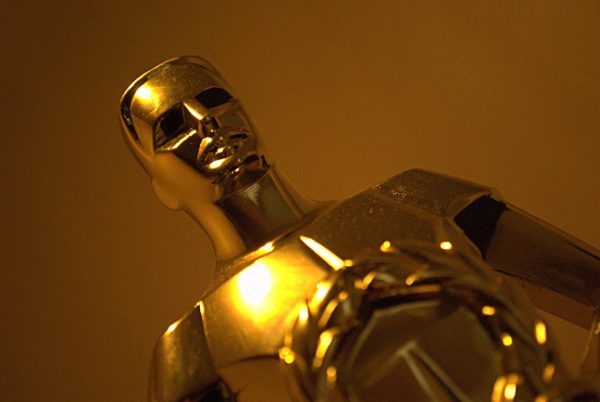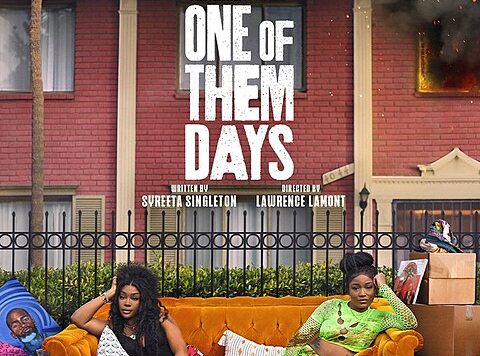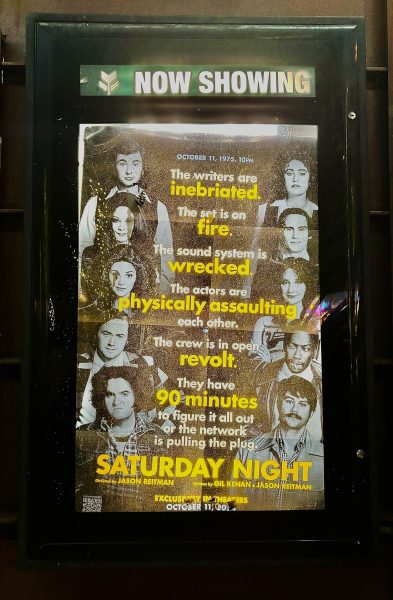‘Charlie’s Angels’ soars to new heights with empowerment, feminism
“Charlie’s Angels” (2019) is a remix to the classic “Charlie’s Angels” franchise, highlighting themes of diversity, rebellion and women empowerment.
The film is based on the ABC crime drama series “Charlie’s Angels,” which aired from 1976 to 1981. Charles Townsend, a millionaire, founds a private detective agency in Los Angeles and recruits three female police officers to work as his “Angels” and fight crime. Townsend monitors his Angels’ work through speakerphone calls while remaining anonymous.
Elizabeth Bank’s two hour remake discusses feminism through Sabina (Kristen Stewart) who, in the opening scene, expresses her desire to fulfill her potential at her job and is mocked for her determination.
“Women can do anything,” Sabina says over candlelit dinner with criminal kingpin Jonny Smith (Chris Pang) in Rio de Janeiro. Smith, the film’s misogynistic antagonist, mockingly refers to Sabina as “miss independent.”
Sabina is contrasted with her partner, Jane (Ella Balinska), a former MI-6 agent with an alpha personality who doesn’t sympathize with Sabina’s unfiltered comments and childish antics.
“Charlie’s Angels” features Balinska in her first lead role, making her the first black actress to play an Angel. The film also features the first black Bosley (Djimon Hounsou).
Bank’s version alludes to Townsend’s death, although his voice still speaks to the Angels via speakerphone. It is also revealed that Bosley, who in previous movies was Townsend’s right-hand man, is more of a title, like a lieutenant. After Townsend’s death, key people, mainly Bosley, are pushed away. Armed with anger and the desire for revenge, Bosley retires from the agency and seeks to destroy it.
The Angels are led by Boz (Banks), the first woman to be promoted to Bosley. Unlike Bosley, whose anger led him to plot his revenge, Boz reminds the Angels that Charlie frowns upon revenge as it contradicts the Angels’ purpose of justice and heroism.
Boz’s leadership position echoes Sabina’s comment of women’s empowerment. Her intuition and commanding presence makes her an exceptional leader. She can relate to the Angels, offering a nurturing side in times of distress as well as the resiliency needed to motivate the Angels.
Elena (Naomi Scott) created Calisto, an alternative source of sustainable energy. However, she notices a flaw in the system which can be weaponized and used to kill. However, when she warns her superiors, she is silenced.
Elena’s situation portrays a hot topic in American society: women in business and the sexism they face. Despite Elena being the chief programming engineer, she is undervalued, and her creation, Calisto, is stolen and sold in the black market by her superior.
This version of “Charlie’s Angels” provides a huge paradigm shift for the Angels — from gravity-defying, stiletto-wearing superheroes to more realistic and relatable characters who defy patriarchal norms. Both Angels and Elena portray a current hot button topic in American society: gender fluidity (Sabina), feminism (Jane) and sexism (Elena).
Overall, the movie stays true to the cliché spy movie action scenes with explosions, bullets and rescues. However, this chapter in the “Charlie’s Angels” franchise effectively touches on issues we currently face as a society. “Charlie’s Angels” is creative and entertaining. My only disappointment is that Townsend’s true identity is never revealed.










